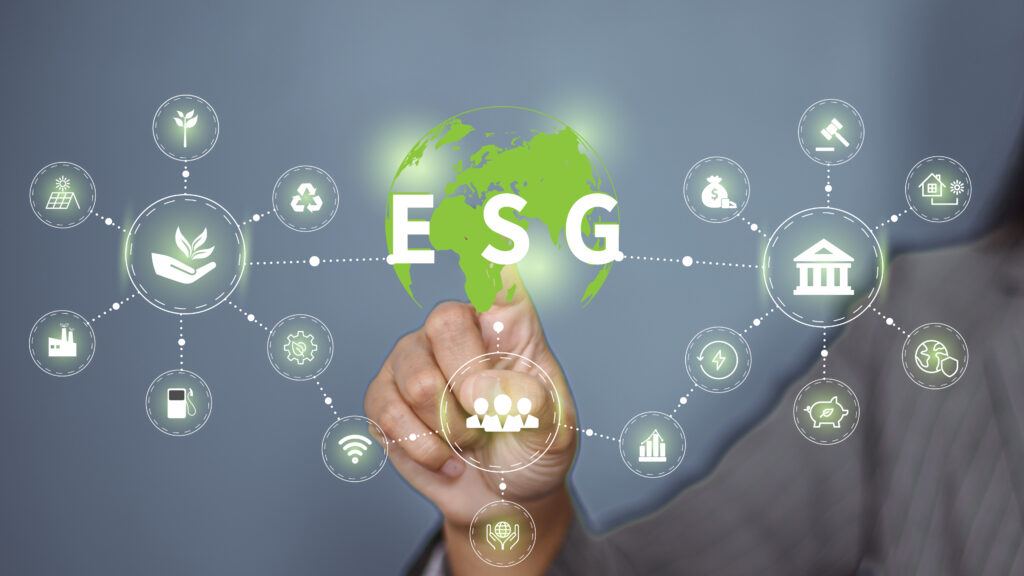ESG Standards Take Hold Across the Gulf: A Path to Sustainable Growth

The adoption of Environmental, Social, and Governance (ESG) standards in the Gulf region has taken centre stage in recent years as governments, investment funds, and corporations increasingly align with global sustainability goals. The shift has been propelled by a need to address climate challenges, diversify economies away from oil dependency, and attract international capital, which now frequently requires robust ESG commitments.
This trend marks a transformative moment for the Gulf, with various industries implementing sustainable practices to respond to environmental demands, social expectations, and governance best practices. In 2022 alone, Gulf Cooperation Council (GCC) countries issued $28.5 billion in green and sustainable bonds and sukuks, underscoring a strong regional commitment to sustainable finance and responsible investment [1].
The Rise of ESG in the Gulf Region
Traditionally, the Gulf’s economy has been driven by fossil fuel revenues; however, recent shifts towards renewable energy and sustainable development initiatives reflect a broader commitment to the ESG framework. National visions such as Saudi Arabia’s Vision 2030, the UAE’s Green Growth Strategy, and Kuwait’s Vision 2035 underscore the strategic priority of sustainable development in regional policy.
In particular, these policies have given rise to frameworks aimed at increasing investment in clean energy, diversifying the economy, and fostering social inclusivity through equitable growth. For instance, Saudi Arabia’s Public Investment Fund (PIF) has developed several ESG-compliant projects, including the NEOM megacity and the Red Sea Project, both of which prioritise renewable energy and sustainable infrastructure. Likewise, the UAE has taken notable steps to improve ESG standards across its corporate sector, with several companies embedding ESG criteria in their business models to attract foreign investors and build sustainable business operations.
Key Sectors Adopting ESG Practices
While ESG standards are being embraced across industries, certain sectors are leading the transition with major investments and innovations:
- Energy and Utilities: Recognising the need to mitigate carbon emissions, Gulf states are investing heavily in renewable energy sources, such as solar and wind power. Projects like Saudi Arabia’s Red Sea Utility and the UAE’s Noor Abu Dhabi Solar Plant showcase the shift towards sustainable energy. The region’s energy companies are also focusing on reducing flaring and improving resource efficiency, which align with broader carbon-neutral goals.
- Finance and Investment: The financial sector has shown a keen interest in ESG, with regional banks and investment funds increasingly offering green financial products. Green sukuks and bonds have gained popularity, with Gulf institutions issuing a record amount in 2022. These instruments are designed to fund projects with clear environmental or social benefits, making them attractive for investors prioritising sustainability [1].
- Real Estate and Infrastructure: Sustainable building practices have gained momentum, with a rise in green buildings, waste management improvements, and energy-efficient construction. The construction of NEOM in Saudi Arabia exemplifies the integration of sustainable infrastructure within megaprojects, aiming to redefine urban living by creating zero-carbon cities that serve as global benchmarks.
- Technology and Innovation: Innovation is playing a significant role in driving ESG compliance across the Gulf. Technologies like artificial intelligence (AI) and blockchain are being leveraged to optimise resource use, streamline operations, and enhance transparency, thus aligning corporate activities with ESG objectives. For instance, AI-driven solutions in utilities allow for more efficient energy distribution, while blockchain is improving supply chain transparency, a key aspect of social and governance standards.
Benefits of ESG Adoption in the Gulf
The growing emphasis on ESG brings several benefits to Gulf corporations and economies at large. Primarily, implementing ESG standards enhances regional competitiveness, making Gulf-based companies more attractive to global investors who increasingly factor ESG compliance into their investment decisions. Moreover, strong ESG practices can reduce risks associated with environmental regulation and social responsibility, building a more resilient economy.
Additionally, as the Gulf region positions itself as a sustainable investment hub, the adoption of ESG standards has the potential to support local job creation, foster technological advancement, and elevate the region’s global reputation. By establishing themselves as leaders in sustainable business, Gulf countries can attract environmentally conscious tourists, partners, and skilled professionals, further reinforcing their economic diversification efforts.
Challenges and the Road Ahead
Despite the benefits, ESG adoption in the Gulf is not without challenges. Regulatory inconsistencies, differing standards across countries, and a lack of standardised reporting mechanisms can hinder ESG compliance efforts. Companies often face difficulties in accurately measuring their environmental and social impact due to the absence of uniform metrics and regional benchmarks. Moreover, the skill gap within the region’s workforce, especially in ESG reporting and impact assessment, remains a barrier to the successful implementation of these standards [5].
To address these challenges, several Gulf countries are developing frameworks to standardise ESG reporting and encourage consistent application across industries. These frameworks aim to align with international standards, such as those set by the Global Reporting Initiative (GRI) and the Task Force on Climate-related Financial Disclosures (TCFD). By adopting clear reporting structures, Gulf companies can increase transparency, build stakeholder trust, and meet the evolving expectations of global markets.
Future Prospects for ESG in the Gulf
Looking forward, the Gulf region’s commitment to ESG is expected to strengthen, with governments and corporations likely to set more ambitious sustainability targets. Initiatives such as Qatar’s 2022 FIFA World Cup sustainability programme, Dubai’s Clean Energy Strategy 2050, and Saudi Arabia’s pledge to reach net-zero emissions by 2060 underscore the region’s forward-looking approach to sustainable growth.
As ESG principles continue to integrate into the core of Gulf economies, the region stands to play an increasingly influential role in shaping global sustainability standards. With continued innovation, policy support, and investment in green technology, the Gulf could emerge as a leader in the global ESG landscape, demonstrating that sustainable development and economic prosperity are not mutually exclusive but mutually reinforcing.


